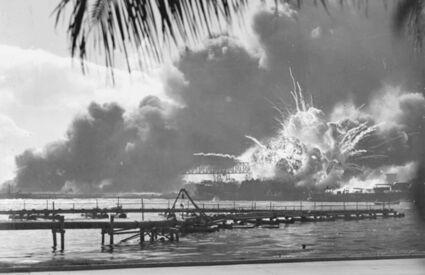80th Anniversary of the bombing of Pearl Harbor
December 9, 2021

The USS Shaw explodes during the December 7, 1941 surprise attack on Pearl Harbor. The day was deemed to "live in infamy" by then President Franklin D. Roosevelt.
December 7, 1941, was a long time ago – 80 years to be exact. Hopefully President Franklin Delano Roosevelt's words still ring true. "Yesterday, December 7, 1941-a date which will live in infamy-the United States of America was suddenly and deliberately attacked by the naval and air forces of the Empire of Japan."
The attack and the President's speech rallied a previously neutral country. War against the Empire of Japan was declared, Dec. 8, 1941, the day he made his oft quoted speech. On Dec. 11, 1941, the Third Reich, commonly called Nazi Germany, declared war on the United States. L...
For access to this article please
sign in or
subscribe.








Reader Comments(0)